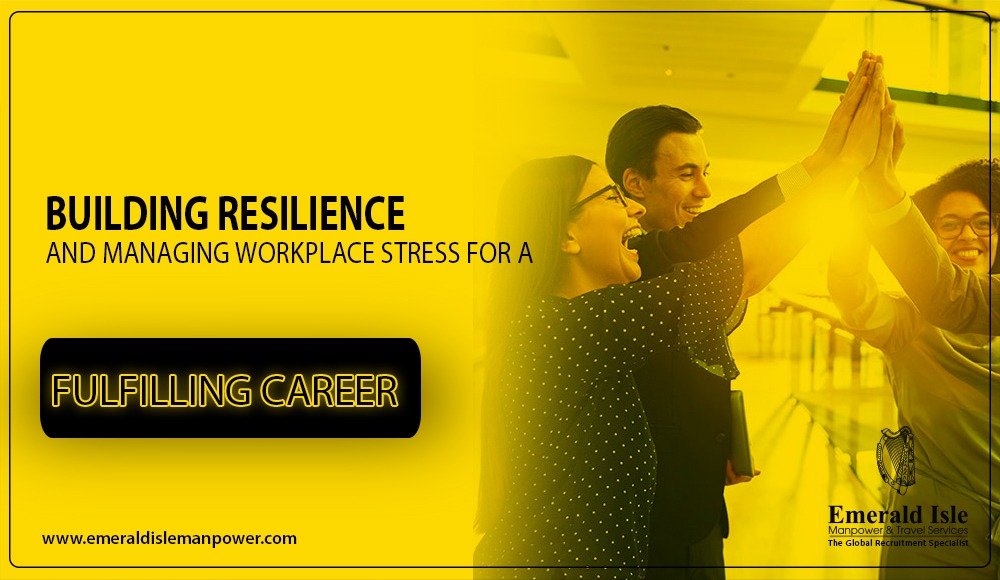In today’s fast-paced and competitive work environment, the pressure to excel and the demands of a career can often lead to excessive stress and burnout. However, with the right strategies, it’s possible to navigate through the challenges, build resilience, and maintain overall well-being. In this blog, we will explore effective techniques for coping with workplace stress and developing resilience to overcome setbacks and challenges in your career.
Understanding Workplace Stress

1. Recognizing the Signs of Stress:
Before tackling workplace stress, it’s essential to identify its symptoms. Common signs include anxiety, irritability, fatigue, difficulty concentrating, and changes in sleep patterns. Acknowledging these signs can be the first step toward addressing the issue.
2. Identifying Stress Triggers:
Every individual has unique stress triggers in their workplace. Identifying these triggers, whether it’s tight deadlines, overwhelming workload, or conflicts with colleagues, allows you to develop targeted coping strategies.
Coping with Workplace Stress

1. Time Management and Prioritization:
Effective time management is crucial for reducing stress. Break tasks into manageable chunks and prioritize them based on deadlines and importance. Create a to-do list and consider using time management techniques like the Pomodoro technique to enhance focus and productivity.
2. Setting Boundaries:
In a connected world, it’s easy to blur the lines between work and personal life. Set clear boundaries to ensure that work-related stress doesn’t spill over into your personal time. Allow yourself time to unwind and engage in activities that rejuvenate your mind and body.
3. Seeking Social Support:
Don’t hesitate to seek support from colleagues, friends, or family. Talking about your stress can provide relief and offer fresh perspectives on the challenges you face. Engaging in positive social interactions at work can also enhance workplace satisfaction.
4. Mindfulness and Meditation:
Practicing mindfulness and meditation can help you stay present, reduce anxiety, and increase overall resilience. Incorporate short meditation sessions or breathing exercises into your daily routine to manage stress effectively.
Building Resilience in the Workplace

1. Embrace a Growth Mindset:
View challenges and setbacks as opportunities for growth and learning rather than failures. Embracing a growth mindset allows you to adapt to change more easily and fosters a sense of empowerment.
2. Develop Problem-Solving Skills:
Resilience involves being proactive in finding solutions to problems. Enhance your problem-solving skills by brainstorming potential solutions, evaluating their effectiveness, and being open to trying new approaches.
3. Cultivate Emotional Intelligence:
Understanding and managing emotions is vital for resilience. Strengthen your emotional intelligence by recognizing your feelings, empathizing with others, and responding to situations in a balanced and constructive manner.
4. Learn from Failure:
Failure is an inevitable part of any career. Instead of dwelling on mistakes, focus on the lessons they offer. Analyze what went wrong, and use that knowledge to improve future outcomes.
Conclusion
Managing workplace stress and developing resilience is essential for maintaining a fulfilling and sustainable career. By recognizing stress triggers, adopting coping strategies, and building resilience through a growth mindset and emotional intelligence, you can not only overcome challenges but also thrive in your professional journey. Remember that self-care and well-being should always be a priority, as a healthy mind and body are the foundations of a successful and rewarding career.








